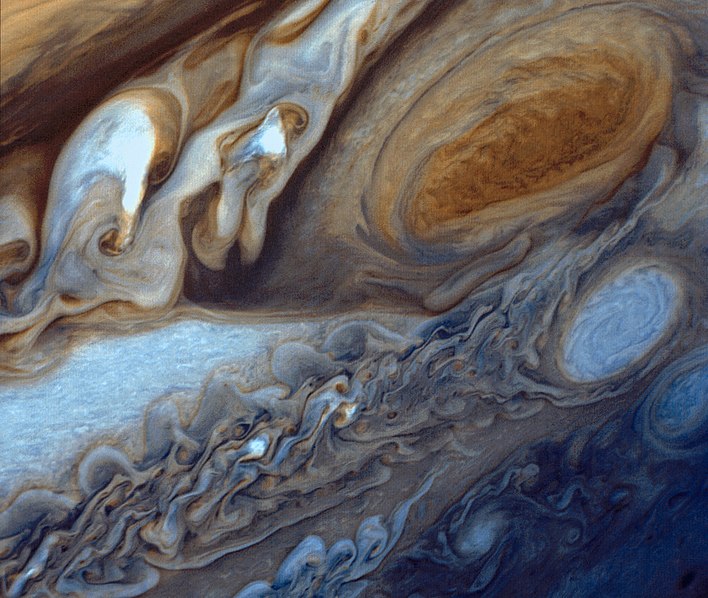But they will! We're talking about a volume the size of 1321.3 Earths. The atmosphere has a volume larger than 1000 Earths. And the combined volume of the seas and atmosphere on Earth is about 0.025% of the whole. That means, that the total volume is about four million times as large.Chalnoth said:No, the amount of reactions won't be much larger, because the molecules will be much more diluted.
So, reactions would have to happen four million times less frequent to be able to come up with the same amount.
But that can happen in any amount of different ways, nothing limits that to only how it happens here on Earth.No single life form lasts forever. It has to be capable of living long enough to reproduce.
But then again, there are so many differences in the conditions between the Earth and Jupiter, that there is really no way to say for sure without going there and trying it.No, because on Earth, we believe, it happened in standing water (whether pools or oceans, I cannot say, but standing water nonetheless). There are also experiments to suggest that asteroid and comet impacts played a significant role in starting life off. Such impacts wouldn't have remotely similar effects on a gas giant.
The environment over there might favor completely different molecules and reactions, for all we know. It's not as if we can see anything but a slim upper layer in any case. You could throw the whole Earth in there, and you would be unable to say it even happened after a while, let alone show where it is.
That vastness only makes it much more probable that it will happen, sooner or later.Without doing any calculations, my instinct is that the volume is too vast, and the proportions too low for the molecules to ever converge in the required amounts to start life off.

